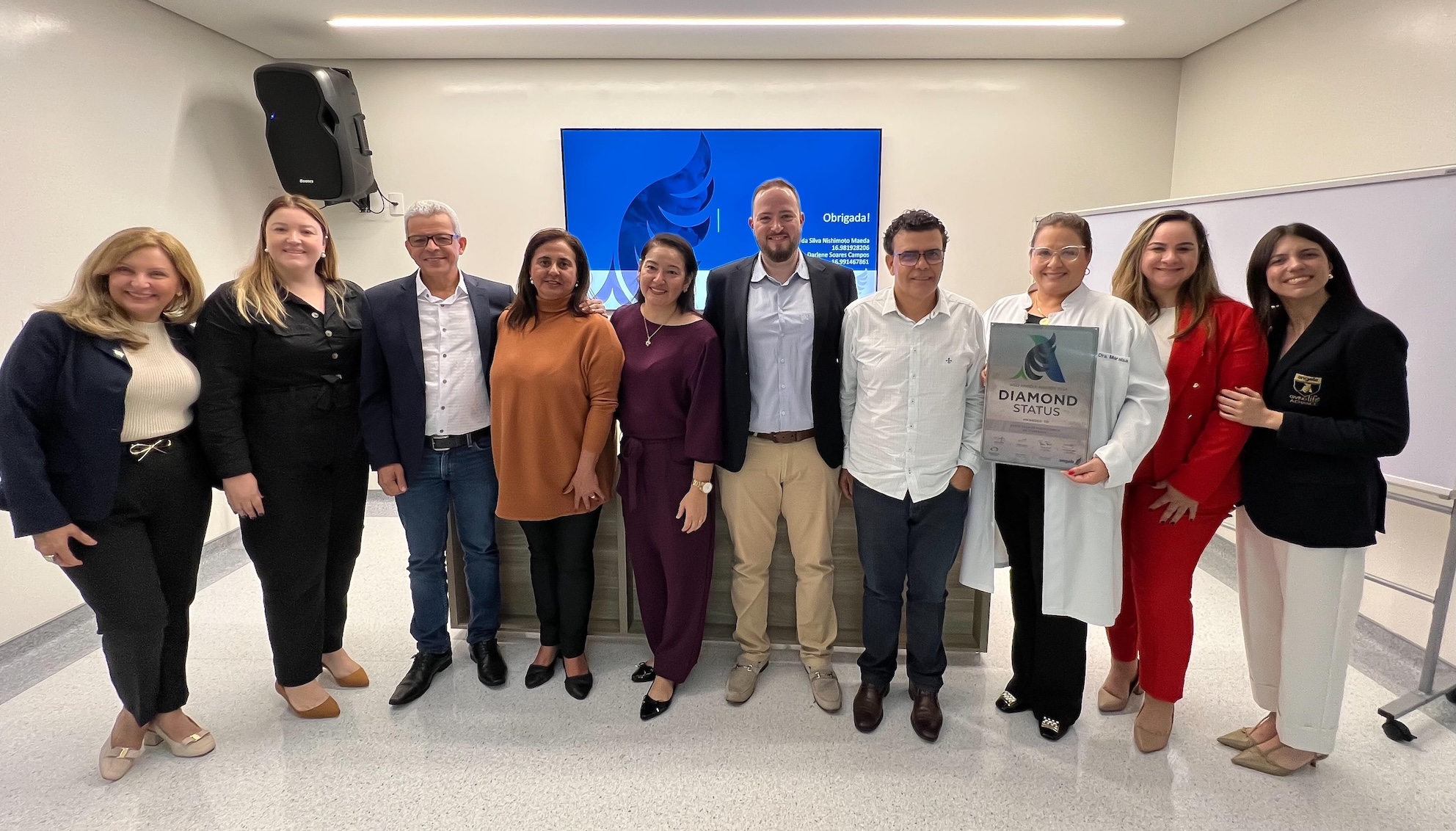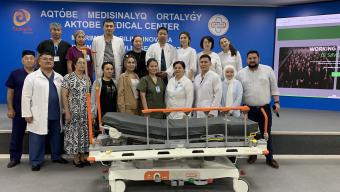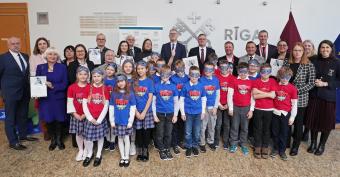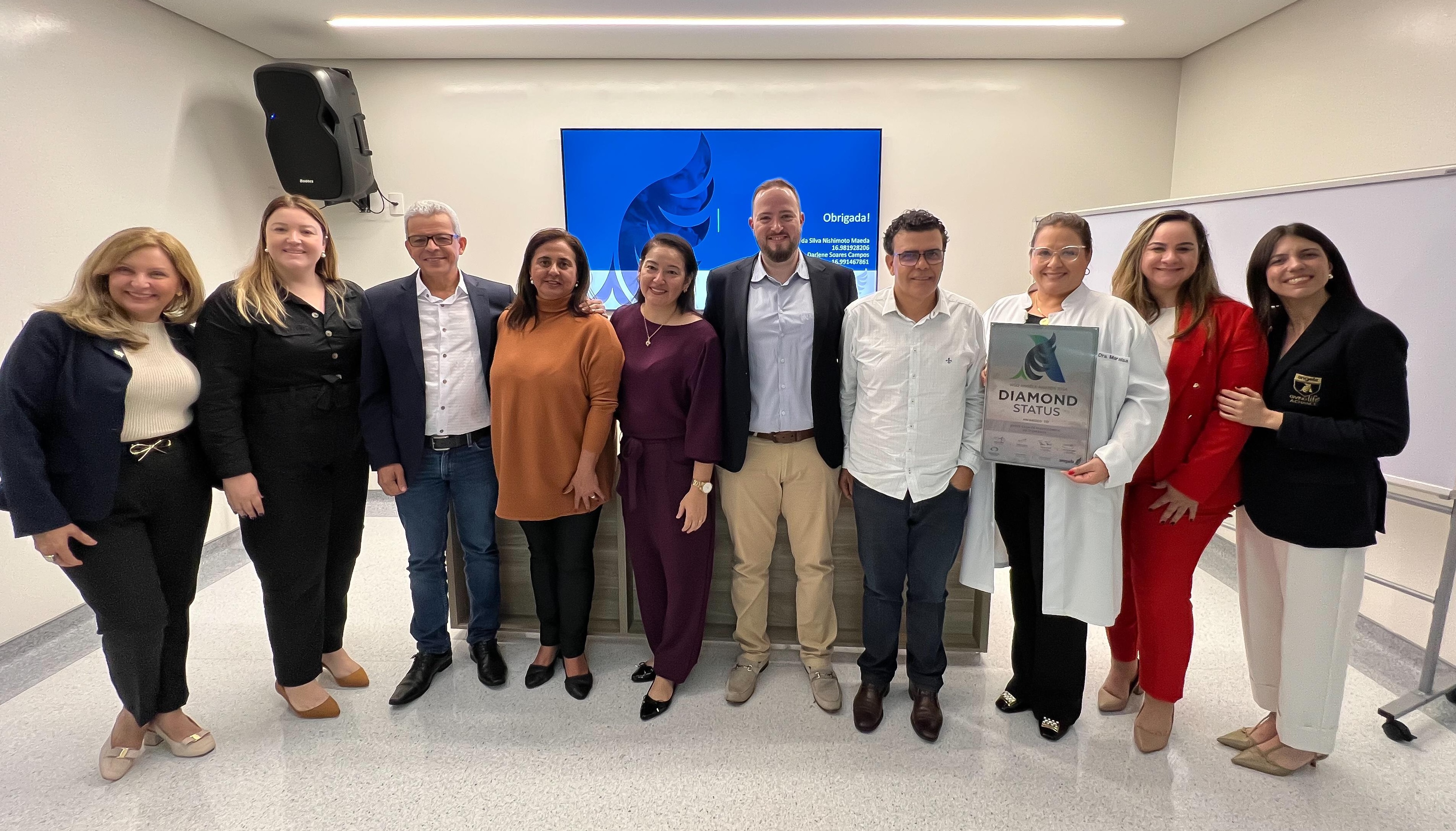
Ituverava is a small town of about 40,000 people in the northeast of São Paulo state, but the hospital serves as the neurology reference center for a surrounding region of around 120,000 inhabitants. For a long time, there was a desire to establish a thrombolysis protocol for acute ischemic stroke, but the main challenge was the absence of a neurologist physically present in the ER full-time. Although we have a neurology service, it is not a continuous on-site presence. Telestroke was the solution that allowed us to overcome this barrier.
The implementation of telestroke was made possible through the Angels Program, which connected us with the team from Hospital das Clínicas de Ribeirão Preto, led by Dr. Octávio Pontes. This contact not only enabled the start of the project, but also marked the beginning of a long-standing partnership. Their team became close collaborators, great friends, and important role models within the Angels community, and they continue to work with us today.
Beyond making thrombolysis feasible, telestroke had a transformative impact on our entire stroke service. It laid the foundation for developing our stroke unit, joining research initiatives, and even becoming a member of the Resilient project, which develops new technologies and scientific advances in stroke treatment. In many ways, all of this progress started with telestroke.
It’s a kind of art
My family is from Ituverava, and I spent 12 years of my life here before leaving for medical school in Rio de Janeiro. I come from a large, close family, and one cousin, who is like an older brother to me, was my role model. He is a radiologist and inspired me to pursue medicine. I made the decision when I was 16.
Neurology has always felt natural to me because it reflects my personality and interests. I have a deep appreciation for art, literature, philosophy, and the complexity of human existence. The brain, to me, is the essence of who we are — both our science and our humanity. Neurology unites those two dimensions: the precision of physiology and the mystery of the mind.
Back in my hometown, I faced the reality that stroke was one of the greatest challenges in our community. That experience directed my path, and over time I became deeply engaged in stroke care. The more I studied and worked with these patients, the more I realized how powerful our impact could be on their lives. In that sense, neurology is not only a science to me, but also a kind of art.
After graduation, it was a natural choice to return home, stay close to my family, and contribute to the community. At that time, there was no organized stroke service – patients only received antiplatelet therapy, and thrombolysis was not available. Together with our chief nurse, Andreza Maeda, and with the support of many colleagues and the Angels Program, we started to change that.
Even a small hospital can reach excellence
I will never forget the first patient I treated with thrombolysis. It was a challenging case, and we had to explain everything carefully to the family. They trusted us, and we proceeded. The patient showed neurological improvement within minutes, and just a few days later he was discharged without disability. It was an extraordinary moment – not only for me, but for the entire hospital. It proved to everyone that this treatment truly works. We still keep in touch with this patient, who recently celebrated his 80th birthday. He even invited us to a large family celebration, where he was strong, healthy, and full of life. Seeing him like that, knowing what we achieved together, remains one of the most meaningful experiences of my career.
Today Santa Casa de Ituverava is recognized as a reference in stroke care, with solid performance and participation in research. The progress has been significant, and it has been the result of teamwork across the whole hospital.
Changing culture is always challenging, especially in a small hospital with a rotating ER team. In the beginning, we struggled to maintain consistent results, particularly during night and weekend shifts when less experienced physicians were on duty. A key factor for success was the nursing team, whose experience allowed them to support on-call physicians, follow protocols, and keep the process consistent, even in difficult shifts.
The Angels Program also helped by setting clear goals and engaging staff. Once we started achieving high standards and receiving awards, it sent a strong message: even a small hospital can reach excellence. That recognition motivated the team and helped us build a sustainable culture of quality care.
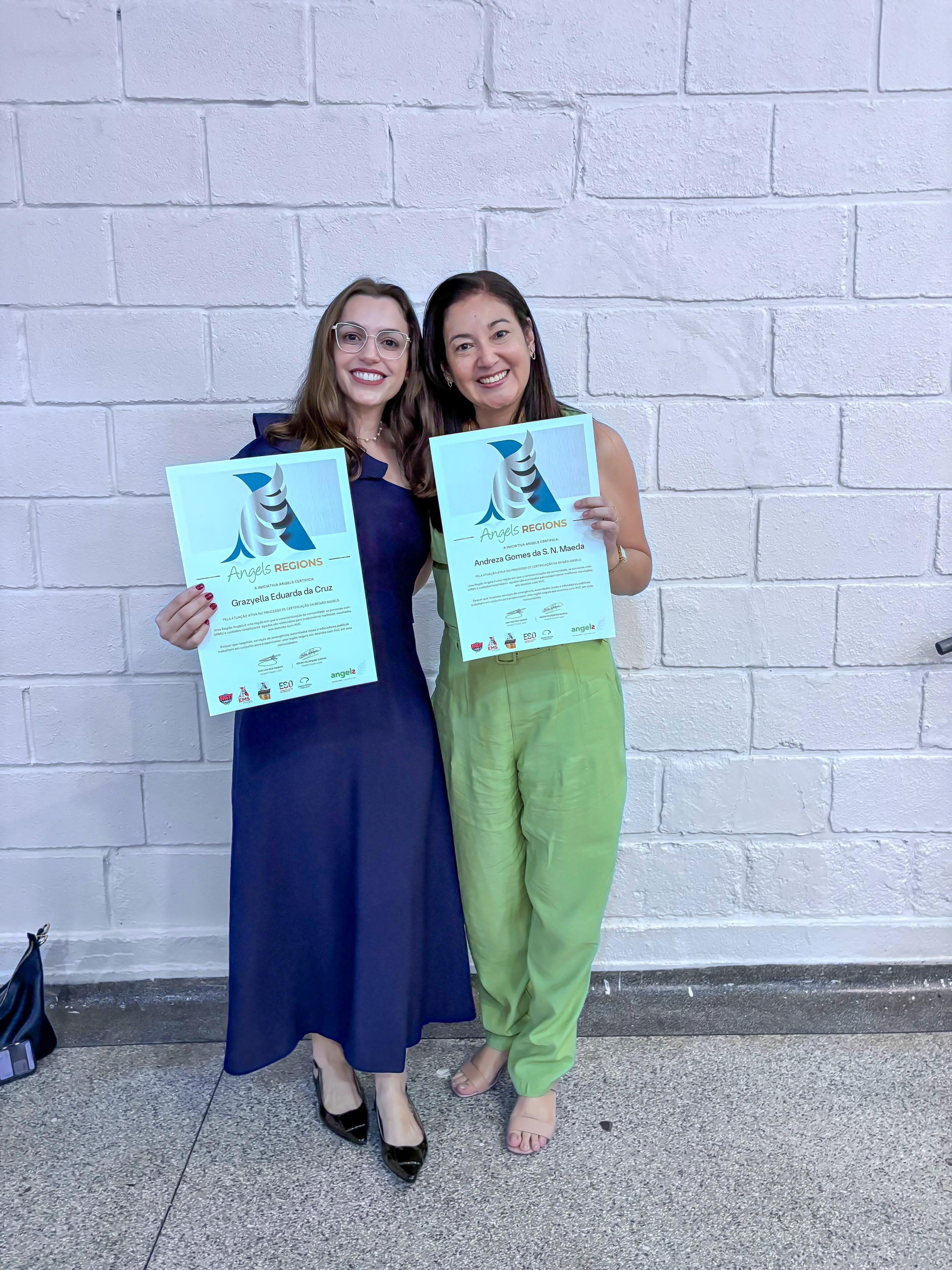
Aim high and keep improving
The success of Ribeirão Preto definitely inspired us. We are very close geographically, and their team has always been a reference point. We learned a lot from their experience and tried to emulate their best practices. Their example showed us that it was possible for a hospital in our region to aim high and keep improving.
We are never fully satisfied with our results, and that is one of our greatest strengths. Every training, every shift, we emphasize the importance of constant improvement. I often tell the team that while we celebrate achievements, the work can always be faster and better – because if it were our own family member, we would want the best possible care. This mindset has kept us motivated and continuously striving for excellence. The results speak for themselves: in February 2025, we reached a door-to-needle time of 12 minutes, our best so far.
Our success comes mainly from leadership engagement and strong support from the hospital board, which recognizes the importance of the project and provides the resources to keep improving. Continuous training of physicians and nurses has been essential, as well as regular integration activities for new staff. In addition, investments in technology — such as upgraded MRI software, a new CT scan, and improved imaging systems — have been game changers, making diagnosis faster and more efficient.
Another key factor has been our culture of accountability and continuous improvement. Every case is reviewed, and whenever we identify delays or mistakes, we analyze what could have been done better.
A silent change
Our region includes many smaller towns, most of which have no neurology or stroke protocols. Santa Casa de Ituverava became the reference center. After improving our internal results, we realized some patients were still arriving too late for thrombolysis because they were first taken to local hospitals. To address this, we built a strong partnership with SAMU Regional Três Colinas. Now, when first responders identify a stroke, they bypass local hospitals and bring the patient directly to us, while pre-notifying our team. This means treatment effectively begins with the ambulance, not just on arrival. It is a silent change, but one that has saved many lives and reduced disability for countless families.
Our partnership with SAMU is very natural because we share the same goal: saving lives and delivering excellence in stroke care. We share experiences, results, challenges, and achievements, which keeps us connected and working as one team.
Our hospital serves mainly patients from the public health system (SUS). More than 80% of our cases are SUS patients, who receive care completely free of charge. Patients with private insurance represents a small percentage of our volume, and the care is exactly the same — the same doctors, the same facilities, the same quality.
The Angels Region recognition has been essential in this context: it gives credibility to our results and provides a strong argument when requesting investments from state and federal authorities. Our hospital board presents these achievements as proof that even a small hospital can make a real difference. After all, healthcare is not about treating one patient well, but about ensuring the same quality for every patient.
My advice to other regions is to remember that people are the key resource. You can have money, technology, and protocols, but without dedicated professionals who care deeply about their patients, none of it works. Excellence comes from building strong local teams, even in small towns, and giving them the training, structure, and support they need. With committed people, everything else – guidelines, technology, partnerships – can be developed. This mindset is what truly makes the difference.
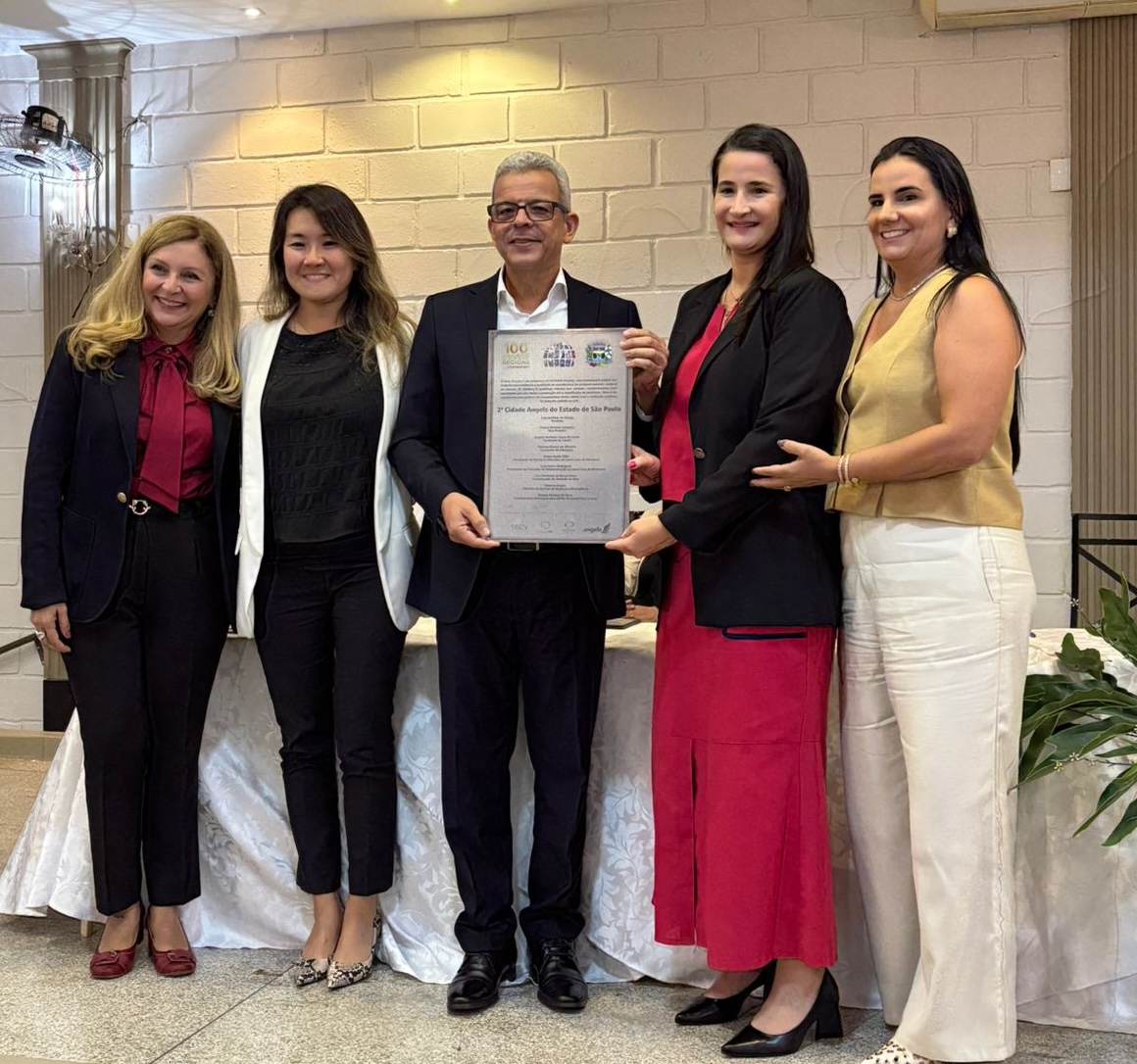
TELESTROKE IN ITUVERAVA | HOW IT WORKS
Ituverava is a small city located in the interior of the state of São Paulo. The telestroke service is provided by doctors 102 km away in Ribeirão Preto, the world’s first Angels City and birthplace of the Angels Regions strategy. Angels consultant Karla Leal Trevisan explains:
“The Telestroke Project provides support to patients with suspected stroke in the acute phase. This support is provided via telemedicine by specialist neurologists who are available 24 hours a day, seven days a week. The tool used is the Join app, which allows access to the patient’s clinical information, DICOM standard tomography images, and communication via audio, text, and video calls.
“The partnership and technological innovation behind telestroke enabled the creation of the stroke unit at Santa Casa de Misericórdia de Ituverava, ensuring local access to highly complex treatment.
“Santa Casa now has immediate remote evaluations by neurologists from Hospital das Clínicas de Ribeirão Preto (HCFMRP), enabling rapid diagnosis and timely thrombolysis. This collaboration has transformed the institution into a national benchmark, pioneering the use of telemedicine for stroke treatment.
“HCFMRP acts as a backup and specialized support, while Santa Casa plays a strategic role as a gateway for acute care in the region.”
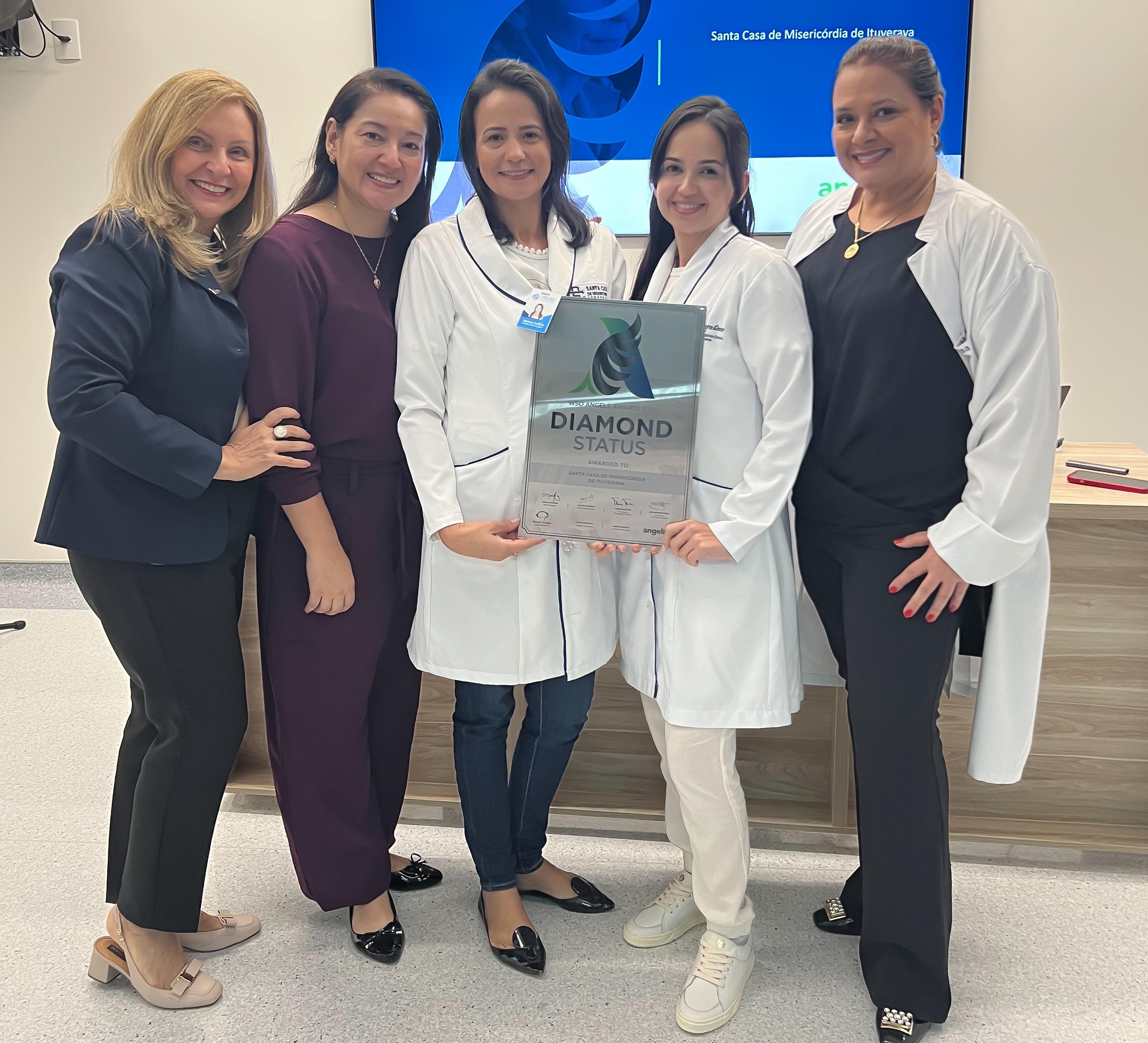
CHIEF NURSE Andreza G. S. N. Maeda | A collective dream
“The concept of Angel Regions, which originated with Ribeirão Preto becoming the world's first Angel City, was and continues to be a great inspiration,” says chief nurse Andreza G. S. N. Maeda.“This recognition demonstrated that it is possible to transform the reality of stroke care through network organization, well-defined protocols, the use of technology, and integration between different levels of care.
“For us in Ituverava, this model was fundamental: it inspired the creation of our own stroke unit, enhanced by the use of telestroke in partnership with the Hospital das Clínicas de Ribeirão Preto. Today, we can affirm that we are following the same path, demonstrating that mid-sized cities can also achieve excellence in stroke care.
“When I first heard about the Angels City concept, I immediately realized how much this recognition symbolizes commitment, innovation, and humanized care in stroke patient care. Since then, we’ve set ourselves the goal of also becoming an Angels City. Achieving this title represents not only the achievement of a goal, but the fulfillment of a collective dream: to save lives and reduce sequelae through structured, innovative, and accessible care.
